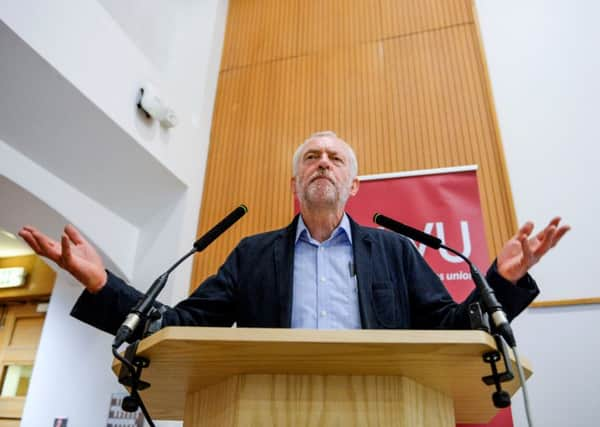Jeremy Corbyn pledges to protect workers' rights after winning union's support


He also maintained he did not live in a “bubble of adulation” and wanted to reach out to people to understand their concerns.
He received a boost from the Communication Workers Union which decided to back Mr Corbyn in the Labour leadership contest.
Advertisement
Hide AdAdvertisement
Hide AdCWU general secretary Dave Ward said the establishment was attacking Mr Corbyn because they knew he represented a “serious vote for change”.
He added: “He is the candidate to drive through the change that ordinary people are crying out for - opposing damaging austerity measures and tackling the housing crisis which is causing misery for so many.
“It’s policies like Jeremy’s announcement on extending the recognition for trade unions which we believe will make a real difference to the working lives of millions. Jeremy is a leader for the millions, not the millionaires, and the CWU is proud to support him.”
Mr Corbyn laid out a series of pledges aimed at tackling “injustices” in the workplace he said had been highlighted by recent “scandals” at Sports Direct and BHS.
Advertisement
Hide AdAdvertisement
Hide AdHe said a Labour government would ban zero hours contracts, repeal the controversial Trade Union Act which places restrictions on strike ballots and increase the living wage.
“It’s time to end rip off Britain and protect workers’ rights,” he said to loud applause from CWU activists.
Mr Corbyn said Labour would renationalise Royal Mail if it wins the next general election and introduce regulations to introduce a minimum number of hours for employees and “reasonable compensation” for people who are available for work.
“It is time to end the scandal of zero hours contracts once and for all. Eighteen countries across Europe have already banned them “
Advertisement
Hide AdAdvertisement
Hide AdWorkers should also have rights from day one of employment and unions should have automatic recognition in firms employing over 250 staff, he said.
He called for unity in the Labour Party, adding he was determined to “take it to the Tories “.